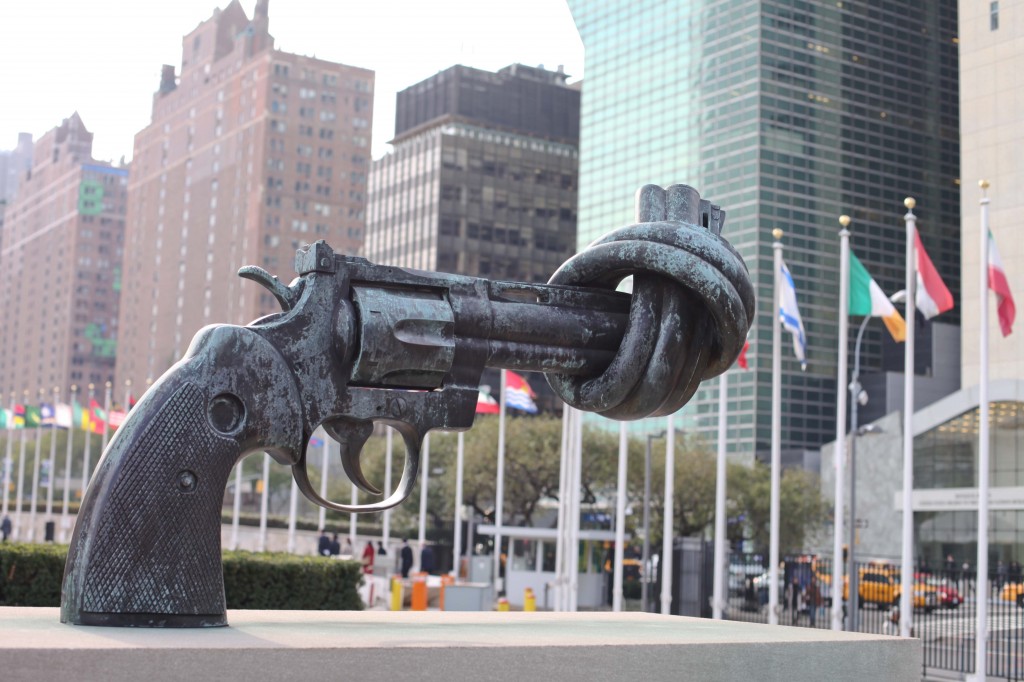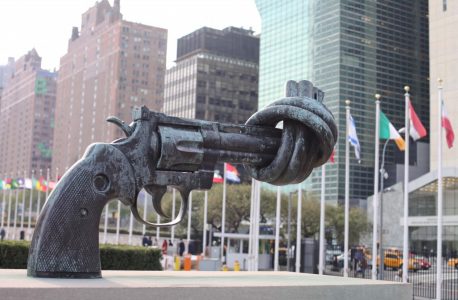Aim
- To promote a new definition of security not based on military expenditure
Background
“Peace – positive peace – is not separate from justice (economic and social), from human rights and democracy, or from environmental protection.” – Diana Francis, Vice President of MAW, international campaigner for peace & justice, mediator, conciliator, Quaker, and a co-founder of Rethinking Security network, of which MAW is a member.
MAW currently works with two significant partners on these issues: Rethinking Security and The International Campaign to Abolish Nuclear Weapons (ICAN)
Rethinking Security is a network of organisations, academics and activists working together for security based on justice, cooperation and sustainability.
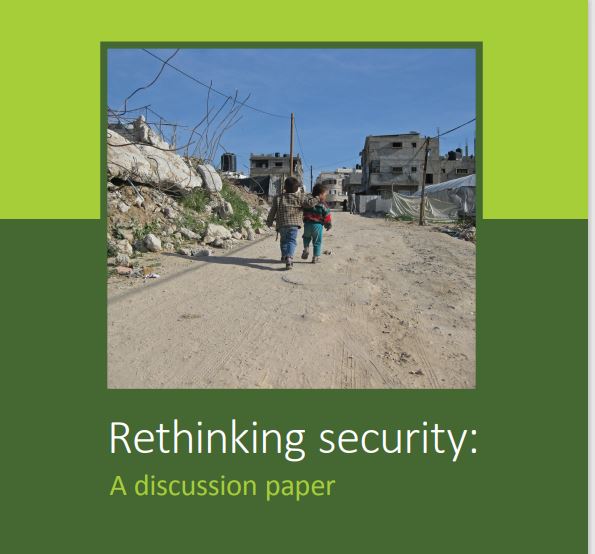
In 2015 they published a discussion paper (pdf) which declared that “The proper goal of security should be grounded in the wellbeing of people in their social and ecological context, rather than the interests of a nation state as determined by its elite.”
The world is becoming less secure for most of its people, and the militaristic responses of Western states are manifestly not working and have often made matters worse. Rethinking Security are committed to building a much richer understanding of what security really means, and of what is required to build sustainable security.
MAW has submitted responses to the House of Commons Foreign Affairs Committee and to the Government’s Integrated Review, conducted by the Cabinet Office (see Campaign progress link below).
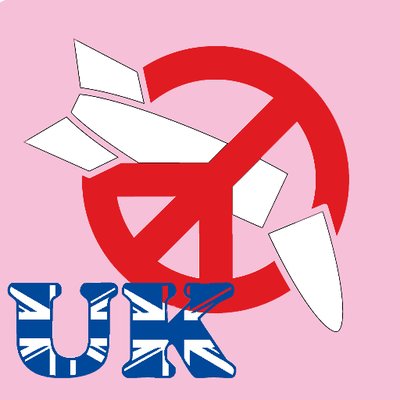
The International Campaign to Abolish Nuclear Weapons believes that discussions about nuclear weapons must focus not on narrow concepts of national security, but on the effects of these weapons on human beings – our health, our societies and the environment on which we all depend for our lives and livelihoods. ICAN has succeeded in reframing the issue of nuclear weapons as an issue of human security: the outcome is the Treaty on the Prohibition of Nuclear Weapons which was voted into international law at the United Nations in 2017 and came into force on 22nd January 2021.
There are many organisations large and small also working to uphold a non-military view of security: including of course the United Nations and its constituent bodies, the Elders, the Inter-Parliamentary Union (IPU) (see below) and many more.
United Nations was founded in 1945 “to save succeeding generations from the scourge of war, which twice in our lifetime has brought untold sorrow to mankind”, and:
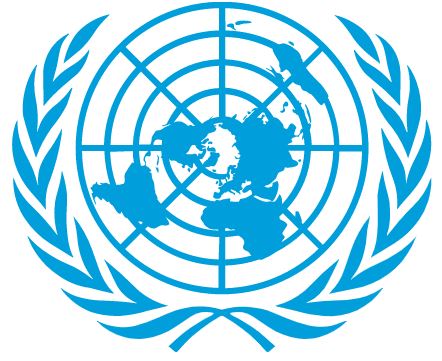
- to reaffirm faith in fundamental human rights, in the dignity and worth of the human person, in the equal rights of men and women and of nations large and small, and
- to establish conditions under which justice and respect for the obligations arising from treaties and other sources of international law can be maintained, and
- to promote social progress and better standards of life in larger freedom,
Inter-Parliamentary Union is the global organization of national parliaments committed to promoting democracy, equality, human rights, development and peace. At their most recent assembly, the 140th IPU Assembly in 2019 in Doha, Qatar, Moureen Osoru, the outgoing President of the Forum of Young Parliamentarians of IPU and one of the MPs representing Uganda, told the IPU delegates: “Peace and security is not won at the barrel of a gun”.
Moureen Osoru reiterated the late Kofi Annan’s call to use education as a mechanism for peace building and said, “No one is born a hater. No one is born a violent extremist. Hate is learned. To nip hate in the bud, we need to solve the problem at its root: in the minds and aspirations of young people. Education is the most powerful way to achieve this.”
MAW has submitted responses to the Foreign Affairs Committee and the Defence Committee of the House of Commons on the (much-delayed) Integrated Security, Defence & Foreign Policy Review. (Link here)

